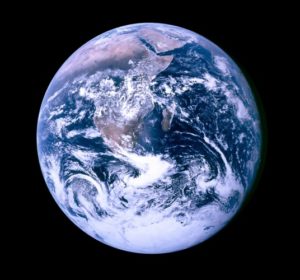Paris’teki İklim Hedefleri’ne ulaşmak için et vergisi şart
PvdD hükümete et vergisi çağrısında bulundu. Et üretimi iklim değişikliğinde büyük rol oynuyor. PvdD millet vekili Frank Wassenberg CO2 emisyonlarını kontrol altına alıp küresel ısınmayı 1,5 derecenin altında tutabilmek için ete daha yüksek KDV uygulanmasının gerekliliğini vurguladı.

Geçtiğimiz Aralık’ta Paris’te düzenlenen İklim Konferansı sonunda çok da bağlayıcı sözleşmeler göremiyoruz. Ülkelerin sera gazı emisyonlarını, bu yüzyılın sonunda kadar küresel ısınmayı 2 derecenin ama tercihen 1,5 derecenin altında tutmak üzere ayarlayacakları konusunda anlaşmaya varıldı. Ama bu ülkeler CO2 emisyonlarını nasıl kontrol altında tutacaklarına kendileri karar verebilecekler.
Dünya Sağlık Örgütüne (WHO) göre sera gazı emisyonlarının en büyük sorumlusu et üretimi. Bütün dünyada et üretimi 7.000.000.000.000 kilo sera gazı üretiyor. Hollanda hükümeti çevreye duyarlı tarım kisvesi altında hayvanların acı çekmesini örtbas ederken, en etkili iklim değişikliğini aslında et üretimini azaltarak sağlayabiliriz. Bu da daha sebze ağırlıklı bir beslenme modeli ve sürdürülebilir tarımla mümkün olabilir.
PvdD millet vekili Frank Wassenberg: “Et üretimi doğaya zarar vermekte ve sera gazları üretmektedir. Biz Hollanda’da pisleten öder prensibini uygularız. Bunu et üretimine de uygulamak gayet mantıklı bir durumdur. Bu da et vergisiyle olabilir. Hollanda Danimarka gibi bir ülkenin modelini uygulayabilir. Danimarka hükümeti, halka sadece az et yemesini öğütlemenin et tüketimini azaltmayacağını düşündüğünden et vergisi koymayı düşünmektedir” diye belirtiyor.
The Party for the Animals calls on the government to introduce a meat tax for the production of meat strongly contributes to global warming. Party for the Animals MP Frank Wassenberg claims that higher VAT should be levied on meat to reduce the CO2 emissions to such an extent that the warming will remain below 1.5 Celsius.

The Climate Summit in Paris last December did not lead to ruthless agreements. The countries did agree that they would attempt to reduce the emissions of greenhouse gases to such extent that the temperature rise would remain below 2 Celsius and preferably not higher than one and a half Celsius. The countries are free to choose how they will reduce CO2 emissions.
The World Health Organisations states that the livestock industry is one of the largest emitters of greenhouse gases. Worldwide, the livestock industry emits 7.000.000.000.000 kilo of greenhouse gas in total. While the Dutch government is attempting to greenwash animal cruelty in terms of climate-smart agriculture, the easiest and fastest way to achieve climate benefits would be to reduce the number of animals in the livestock industry. This can be achieved by adopting a more vegetal diet and sustainable agriculture.
Party for the Animals MP Frank Wassenberg: “The production of meat has an impact on the environment and contributes to the greenhouse effect. In the Netherlands we maintain the principle that the polluter pays. Logically, the same should apply to meat. It can be effected through a meat tax. The Netherlands would then be in line with a country like Denmark. The Danish government is considering to introduce a meat tax because they believe that just asking consumers to eat less meat is not enough.”